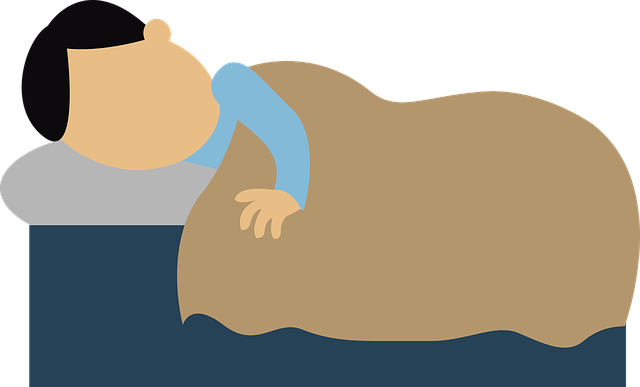Sleep disorders such as night terrors and insomnia can disrupt your nightly rest, leaving you feeling fatigued, anxious, and drained the following day. The good news is that with the right strategies, it’s possible to regain control of your sleep and manage these conditions naturally.
This guide offers practical solutions for addressing night terrors and insomnia through lifestyle changes, relaxation techniques, and self-care practices.
What Are Sleep Disorders?
Sleep disorders refer to conditions that affect your ability to get restorative sleep. These can manifest in various forms, including difficulty falling asleep, staying asleep, or experiencing vivid dreams or frightening episodes during the night.
Two common sleep disorders are
-
Night Terrors These are intense, frightening episodes that typically occur during the deepest stages of sleep (non-REM sleep). The person experiencing night terrors may wake up in a state of panic, sweating, and confusion but usually has no memory of the event in the morning.
-
Insomnia Insomnia refers to difficulty falling asleep, staying asleep, or waking up too early and not being able to fall back asleep. It can be acute (lasting a few days) or chronic (lasting for months or longer).
Understanding Night Terrors
Night terrors are more common in children, but adults can also experience them. They typically occur during deep non-REM sleep, making them different from nightmares. While nightmares are remembered upon waking, night terrors usually leave no memory. Symptoms can include
-
Screaming or thrashing in bed
-
Increased heart rate and sweating
-
A sense of fear or terror
-
Difficulty waking the person from the episode
How to Manage Night Terrors
-
Establish a Consistent Sleep Routine
Create a calming bedtime ritual that signals the brain that it’s time to wind down. This can include activities like reading, meditating, or taking a warm bath before bed. -
Create a Relaxing Sleep Environment
Ensure that your bedroom is dark, quiet, and cool. Using a white noise machine can help mask disruptive noises that may trigger night terrors. -
Reduce Stress and Anxiety
Since night terrors can be triggered by stress, practicing mindfulness and relaxation techniques during the day can help manage them. Techniques such as deep breathing, progressive muscle relaxation, and journaling before bed can reduce anxiety. -
Address Underlying Health Conditions
In some cases, night terrors are linked to other sleep disorders or health conditions, including sleep apnea, anxiety, or trauma. Consult a healthcare professional to rule out any underlying causes. -
Gradual Awakening Technique
If your child or a loved one suffers from night terrors, you might try gently waking them 15 minutes before an episode is likely to occur. This can help interrupt the sleep cycle and reduce the chances of the terror happening.
Understanding Insomnia
Insomnia affects millions of people worldwide and can significantly impact quality of life. It is often caused by a variety of factors, such as stress, anxiety, poor sleep habits, or medical conditions. Symptoms of insomnia include
-
Difficulty falling asleep despite feeling tired
-
Waking up multiple times during the night
-
Waking up too early and not being able to fall back asleep
-
Feeling unrefreshed upon waking
How to Manage Insomnia
-
Establish a Regular Sleep Schedule
Go to bed and wake up at the same time every day, even on weekends. This consistency helps regulate your body’s internal clock and makes it easier to fall asleep. -
Limit Stimulants and Alcohol
Caffeine, nicotine, and alcohol can disrupt your sleep cycle. Try to avoid these substances at least 4-6 hours before bedtime to prevent sleep disturbances. -
Create a Relaxing Pre-Sleep Routine
Engage in calming activities like meditation, yoga, or reading to signal your body that it’s time to wind down. Avoid stimulating activities, such as watching television or working, right before bed. -
Optimize Your Sleep Environment
Ensure your bedroom is conducive to sleep. Keep it dark, quiet, and cool. Invest in a comfortable mattress and pillows to ensure physical comfort while you sleep. -
Limit Screen Time
The blue light from phones, tablets, and computers can interfere with melatonin production, the hormone responsible for helping you sleep. Turn off electronic devices at least an hour before bedtime. -
Practice Cognitive Behavioral Therapy for Insomnia (CBT-I)
CBT-I is a highly effective, evidence-based approach to treating insomnia. It focuses on changing thoughts and behaviors around sleep to improve sleep quality and duration. A licensed therapist can guide you through this treatment.
When to Seek Medical Help for Sleep Disorders
If your sleep problems persist despite implementing self-care strategies, it may be time to consult a healthcare provider. A professional can help identify any underlying medical conditions such as
-
Sleep apnea
-
Restless leg syndrome
-
Anxiety or depression
-
Chronic pain or other medical issues
Treatment options may include cognitive behavioral therapy (CBT), medication, or lifestyle interventions tailored to your specific needs.
Managing sleep disorders such as night terrors and insomnia is possible with the right approach. By incorporating healthy sleep habits, reducing stress, optimizing your sleep environment, and seeking professional support when necessary, you can regain control over your sleep and improve your overall well-being.
Taking care of your sleep isn’t just about getting rest it’s about supporting your mental and physical health. Start by making small changes, and over time, you’ll experience the benefits of improved sleep quality, enhanced mood, and increased daytime energy.


